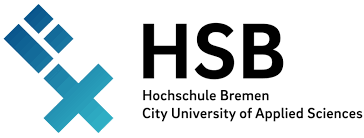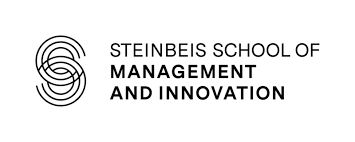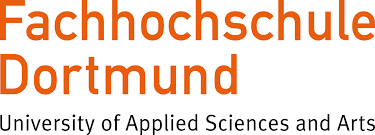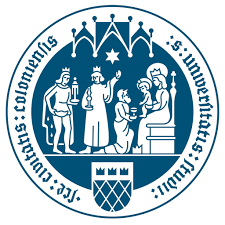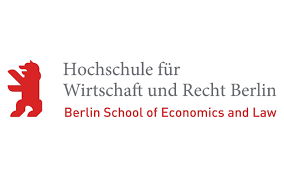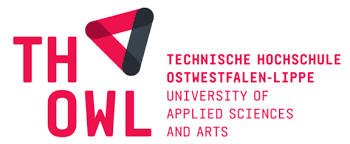Masters in Management in Germany

Contents
If you're considering pursuing your master’s in management in Germany, you're in the right place! Germany has become a top destination for students in recent years, thanks to its affordable—sometimes even free—tuition policies, flexible visa processes, and the availability of courses taught entirely in English. You'll find a wide range of management degrees at major universities, including Master in Management (MiM), Master of Business Administration (MBA), and Master of Science (MSc) programs.
Master's in Management Tuition-Free Courses
One of the major advantages of studying management in Germany is the availability of tuition-free courses at public universities, allowing you to study master’s in management for free. As an international student, you can benefit from high-quality education without significant tuition fees.
-
Public Universities: Most public universities in Germany offer tuition-free master's programs in management. You typically only need to pay a small semester fee, ranging from €100 to €350, which covers administrative costs and access to student services like public transportation.
-
Living Costs: While tuition is often free, living expenses should be considered, typically ranging from €800 to €1,200 per month. These include accommodation, food, health insurance, and other personal costs typically covered by your blocked account money.
-
Scholarships: To help cover living expenses, look into scholarships from organizations like DAAD (German Academic Exchange Service).
Which Management Program Is Right for You?
Germany offers a variety of management degrees tailored to different career paths and interests. Whether you are into business administration or prefer a role in human resources management instead, courses are available for you! Here are some of the most popular options and courses available to choose from:
Business Management Master's in Germany
This degree is ideal for those looking to lead in corporate environments, focusing on areas like finance, marketing, and operations. It also suits students interested in becoming business leaders or entrepreneurs.
Project Management Master's in Germany
This degree is perfect for those who enjoy organizing, leading teams, and managing complex projects. It is ideal for those aiming for roles in industries like construction, IT, or manufacturing.
Supply Chain Management Master's in Germany
Focuses on the logistics and operations that keep businesses running smoothly. It’s a great fit for students interested in the intricacies of global supply chains, logistics, and operations management.
Human Resource Management Master's in Germany
It is best for students who are passionate about people and organizational culture. This degree prepares you for roles in talent management, recruitment, and employee relations.
Explore more management and business-related study programs in Germany to find the one that suits your career goals.
Admission Requirements for Management Master's
Understanding the admission requirements is key to a smooth application process. If you're starting or want a complete overview of studying in Germany — including funding, applications, and student life — check out our complete guide to studying in Germany.
University Degree Requirements
- Bachelor's Degree: You must have a relevant bachelor's degree in management or a related field, such as business administration or economics. Some programs may require specific coursework in management or business studies.
-
Additional Requirements: German universities often do not require the GMAT, unlike many MBA programs worldwide. Instead, they strongly emphasize professional work experience and other relevant qualifications. This approach allows students to apply for MBA programs in Germany without needing the GMAT. However, requirements can vary from one university to another, so it’s crucial to check the specific criteria on each university’s website to ensure you have the most current information.
Language Requirements
- German Proficiency: If your program is taught in German, you must demonstrate proficiency through tests like TestDaF or DSH.
- English Proficiency: For English-taught programs, tests like TOEFL or IELTS are required. Ensure you check the specific language requirements of your chosen program.
If you opt for a degree program conducted in both languages, you will need to prove your language skills in German and English. Similarly, if your program is entirely in English, you only need to show English proficiency.
Work Experience Requirements
-
Relevant Experience: Some management programs may prefer or require prior work experience, especially for specialized fields like project management or international business. Internships or relevant projects can enhance your application, and you should mention any relevant experience when submitting your application.
Admission Deadlines for Master's in Management
Timing is crucial when applying for a master's program in Germany. Here are the typical deadlines:
- Winter Semester: The primary intake for most programs, with deadlines typically from mid-December to late March.
- Summer Semester: A secondary intake with fewer programs available. Deadlines generally fall between mid-May and late September.
If you want to learn more about the best universities in Germany for MBA degrees, we have just the guide for you!
Master's in Management Programs in English
Many universities in Germany offer management programs in English, which makes them accessible for international students at a fraction of the price compared to some of the other countries. Here are management courses offered in English:
Alternative Degree Options for Management Students
If you're interested in expanding your career options beyond traditional management roles, consider these alternative degrees:
Entrepreneurship Degrees
These degrees prepare you for launching and managing startups, combining management principles with creative thinking and business development.FAQs
Is Germany good for a Master's in Management?
Absolutely! Germany is a top destination for a Master's in Management due to its renowned educational institutions, affordable or tuition-free programs, and strong ties with global industries. The country is known for its high academic standards and practical approach to management education, making it an excellent choice for students aiming to build a successful career.
Is it easy to get a job in Germany after a Master's in Management?
Yes, finding a job in Germany after completing a Master's in Management is reasonably achievable, especially given the strong demand for skilled management professionals in sectors like finance, consulting, and manufacturing. While many international graduates find opportunities in Germany, learning German can significantly enhance your job prospects and ease the integration into the local job market.
Is Master's in Management (MiM) free in Germany?
Many public universities in Germany offer tuition-free Master in Management (MiM) programs. While there are no tuition fees, students are required to pay a small semester fee, usually between €100 to €350, which covers administrative costs and services like public transportation.
How much does a Master in Management earn in Germany?
Graduates with a Master’s in Management in Germany typically start with salaries ranging from €50,000 to €70,000 per year. Earnings can vary based on factors like industry, location, and experience level, with the potential for higher salaries as you gain more experience and responsibility.
Do I need a GMAT to study for an MBA in Germany?
In many cases, German universities do not require the GMAT for MBA programs. Instead, they often prioritize professional work experience and other qualifications. However, admission requirements can vary by university, so it’s essential to check the specific program requirements you’re interested in.
This might also be of interest to you

Summer Semester in Germany: Your Complete Guide for April 2026 Intake
Thinking about studying in Germany but missed the October deadline? The summer semester might be your perfect opportunity. While most international...

Why More Indian Students Are Choosing Germany Over the USA
In the last decade, Germany has become one of the fastest-growing study destinations for Indian students. While the USA once dominated the dreams of...

Top Courses for Indian Students in Germany vs USA (2025 Guide)
Studying abroad is a dream for many Indian students, but choosing the right country and course can be confusing. The United States and Germany are...

Germany vs USA: Work After Study Options for Indian Students (2025 Guide)
When you're choosing where to study abroad, it's not just about the university name or the country hype. For many Indian students, the big question...

5 Cheapest Countries to Study Abroad for Indian Students (2026 Guide)
Studying abroad doesn't have to drain ₹40-60 lakhs from your family's savings. Five countries offer world-class education for under ₹10 lakhs per...

Germany vs USA: Which Is Better for Indian Students in 2025?
Choosing where to study abroad is a big deal, especially for Indian students. You're not just picking a country; you're deciding to move far from...

Germany Welcomes Displaced Harvard Students: A New Academic Home
In a move that’s left thousands of students in shock, the U.S. government has revoked Harvard University’s certification to enroll international...


